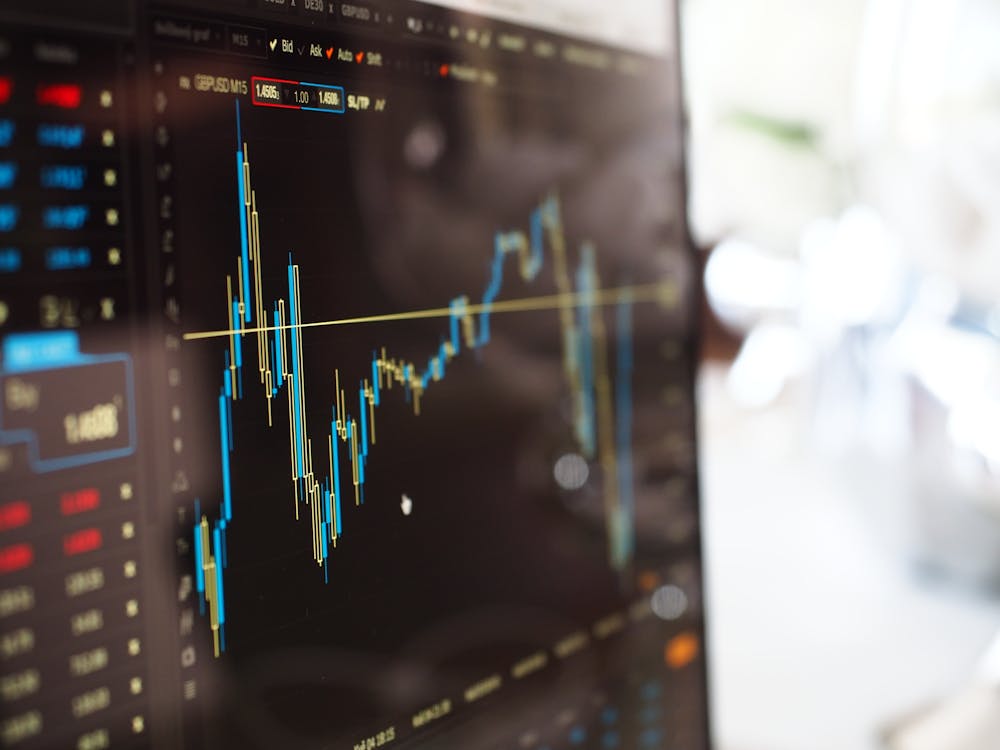Trading in the USA refers to the buying and selling of financial instruments such as stocks, currencies, commodities, and derivatives within the boundaries of the United States. It plays a pivotal role in the economy, facilitating capital formation and enabling investors to participate in the growth of various sectors. The US stock market, one of the largest in the world, serves as a platform for companies to raise capital and for individuals to invest in a wide range of assets.
Types of Trading in the USA
Stock Trading
Stock trading involves buying and selling shares of publicly traded companies on stock exchanges such as the New York Stock Exchange (NYSE) and NASDAQ. Investors aim to profit from fluctuations in stock prices, either through short-term trading or long-term investing.
Forex Trading
Forex, or foreign exchange, trading involves the buying and selling of currencies in the global foreign exchange market. Traders speculate on the value of one currency relative to another, aiming to profit from fluctuations in exchange rates.
Cryptocurrency Trading
Cryptocurrency trading involves buying and selling digital currencies such as Bitcoin, Ethereum, and Litecoin on online platforms called cryptocurrency exchanges. It has gained popularity in recent years due to the potential for high returns and decentralized nature of cryptocurrencies.
Options Trading
Options trading involves buying and selling contracts that give the holder the right, but not the obligation, to buy or sell an underlying asset at a predetermined price within a specified period. It allows traders to profit from price movements in stocks, currencies, and commodities with limited risk.
Regulations and Agencies
Trading in the USA is subject to strict regulations enforced by government agencies such as the Securities and Exchange Commission (SEC), which oversees the securities markets, and the Commodity Futures Trading Commission (CFTC), which regulates commodity futures and options markets. Additionally, self-regulatory organizations like the Financial Industry Regulatory Authority (FINRA) establish rules and standards for brokerage firms and their registered representatives.
Popular Trading Platforms
Several online brokerage platforms cater to traders in the USA, offering access to various financial markets and trading instruments. Some popular platforms include Robinhood, known for its commission-free stock and crypto trading, TD Ameritrade, offering a wide range of investment products and educational resources, E*TRADE, known for its user-friendly interface and advanced trading tools, and Coinbase, a leading cryptocurrency exchange for buying, selling, and storing digital assets.
Strategies for Successful Trading
Fundamental Analysis
Fundamental analysis involves evaluating the financial health and performance of companies or economies to determine the intrinsic value of their assets. Traders analyze factors such as earnings, revenue, growth prospects, and market trends to make informed investment decisions.
Technical Analysis
Technical analysis involves studying past market data, primarily price and volume, to identify patterns and trends that can help predict future price movements. Traders use various technical indicators and charting tools to analyze market behavior and identify potential trading opportunities.
Risk Management
Risk management is crucial for successful trading, as it involves minimizing potential losses and preserving capital. Traders employ strategies such as setting stop-loss orders, diversifying their portfolios, and sizing their positions appropriately to manage risk effectively.
Benefits of Trading in the USA
Trading in the USA offers several benefits for investors, including the potential for profit, diversification of investment portfolios across different asset classes and markets, and access to a wide range of financial products and services.
Challenges and Risks
Despite its potential rewards, trading in the USA also poses challenges and risks for investors, including market volatility, regulatory changes, and psychological factors such as fear and greed that can influence decision-making.
Tips for Beginners
For beginners looking to venture into trading, it's essential to educate themselves about the financial markets, start with small investments to gain experience, and practice trading strategies using paper trading or demo accounts before committing real capital.
Trading Psychology
Understanding and managing emotions such as greed, fear, and overconfidence are critical aspects of successful trading. Developing discipline, patience, and emotional control can help traders navigate volatile markets and make rational decisions based on logic rather than impulses.
Trading Tools and Resources
Various trading platforms, research and analysis tools, and online communities provide traders with the necessary resources to succeed in the markets. Leveraging these tools can help traders stay informed, analyze market data effectively, and connect with other traders for insights and support.
Case Studies of Successful Traders
Studying the strategies and experiences of successful traders such as Warren Buffett, known for his value investing approach, George Soros, famous for his currency speculation, and Paul Tudor Jones, renowned for his macroeconomic analysis, can provide valuable insights and inspiration for aspiring traders.
Impact of Technology on Trading
Advancements in technology have revolutionized the trading landscape, enabling innovations such as algorithmic trading, high-frequency trading, and mobile trading apps that offer convenience, speed, and automation to traders.



0 Comments